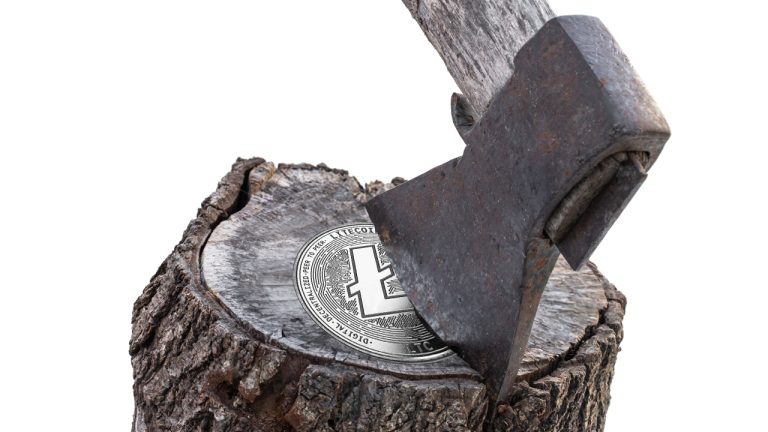
In a mere fortnight, the Litecoin network is poised for its third reward halving event, a seismic shift that will slash the LTC miners’ block rewards from 12.5 LTC per block down to 6.25 LTC. Data illustrates an intensified dedication of hashrate to the Litecoin blockchain as the critical halving deadline draws near.
Litecoin Reward Halving Draws Near
Over the last two weeks, litecoin (LTC) has seen a notable descent, depreciating approximately 17% in value against the U.S. dollar. However, casting the gaze back a full month reveals a contrasting picture, with LTC capturing a gain of roughly 18%. In just 15 days, the Litecoin network stands on the precipice of its third halving.
History shows us a pattern with the first two reward reductions taking place on August 25, 2015, and August 5, 2019, respectively. This forthcoming third halving is set to shrink the miners’ rewards from a substantial 12.5 LTC per block to a more modest 6.25 LTC. In contrast to Bitcoin’s average block interval, which aims to clock in at ten minutes per block, Litecoin operates at a swifter pace, producing a new block every 2.5 minutes.
At the time of writing, factoring in current LTC exchange rates, a single block rewards miners with $1,161 derived from the freshly minted 12.5 LTC. If the LTC’s price manages to maintain the same exchange rate, a block mined post-August 2, 2023, can anticipate a value of around $580. The price upswing of LTC over the recent 30-day span has sparked substantial interest, luring an abundance of Scrypt hashrate.
Litecoin’s hashrate dramatically peaked on July 4, 2023, reaching a record high of 1.03 petahash per second (PH/s) at block height 2,503,485. This indicates an unprecedented level of activity on the network. At present, LTC’s total hashrate is coasting along at 804 terahash per second (TH/s).
In the mining industry, Litecoin’s application-specific integrated circuit (ASIC) mining devices are currently staking a claim as some of the market’s most profitable machinery. For instance, a mining rig delivering 8.8 gigahash per second (GH/s) can amass an estimated daily profit of $7.83. Moreover, a machine operating at 9.5 GH/s could garner a slightly higher daily earning of $9.24.
As of July 16, Viabtc reigns supreme as Litecoin’s leading mining pool, dedicating a formidable 268.63 TH/s of hashrate to the LTC chain. Approximately 27 dedicated mining pools are channeling their hashrate toward the LTC chain. Viabtc is followed by F2pool, contributing 136.87 TH/s, trailed by Antpool with 117 TH/s. Meanwhile, Litecoinpool adds 90.84 TH/s, Btc.com contributes 42.95 TH/s, and Poolin rounds out the field with a contribution of 30.49 TH/s.
What do you think about the upcoming Litecoin halving? Share your thoughts and opinions about this subject in the comments section below.
from Bitcoin News https://ift.tt/SvNybcd
Comments
Post a Comment